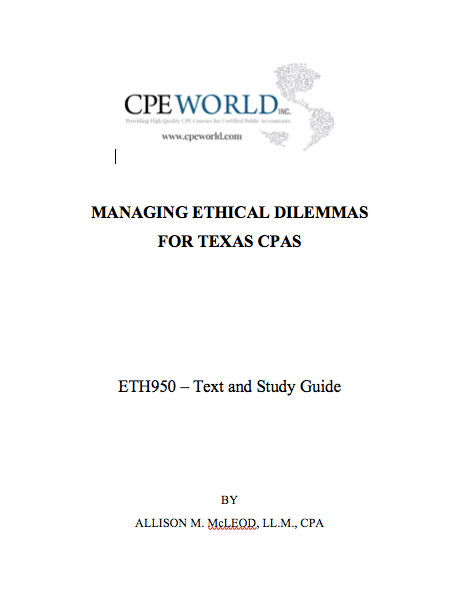
A certificate for bookkeeping is a credential designed for bookkeeping professionals. It differs from the CPB license in several ways, including the credential requirements and prerequisites. Candidates must successfully pass the final exam and take preparatory classes to qualify for this credential. Candidates may take notes or workbooks, but they must show proper identification when taking the exam.
Exam preparation
Successful bookkeeping certification requires preparation. The exam is 50 minutes long, contains 40 questions, and requires a thorough understanding of accounting principles. To be eligible for the certification exam, an individual must have completed 150 hours training. They will test core concepts such as accounting for sales transactions. They will also learn about reconciliations and financial statements.
Before you register to take the exam, it is important for bookkeepers to look into certification programs. The requirements for a certificate vary depending on the institution. Some will offer short training courses, while others may require multiple classes. This is important to take into account when deciding whether you should pursue certification.
Course content
The Certificate of bookkeeping course content is a practical guide to the accounting profession. It helps students understand the phases of an accounting cycle, how to analyse and interpret financial statements, as well as how to use Excel spreadsheet software. As they learn to make informed business decisions based on financial information, students will also be introduced the worlds of managerial accounting.

Although the course can be done by self-study, there are plenty of resources and support available, such as a dedicated Student Services Department or teachers available by telephone. Students can also communicate with each other through the student community.
Requirements for certification
For a bookkeeper to obtain a certification from the National Association of Certified Professional Bookkeepers (NACPB), they need to maintain a certain level of education and training. To maintain certification, bookkeepers need to earn 60 continuing education credits every three years. You can complete these hours by taking self-paced courses or participating in webinars. By completing the training, bookkeepers can boost their marketability by improving their skills and knowledge base.
To become certified, bookkeepers need to complete a comprehensive course in bookkeeping and accounting. The AIPB certification exam for bookkeepers is two-part. To pass it, bookkeepers need to have two years of related experience and agree to follow its code of ethics. Bookkeepers should score seventy-five percentage or higher for both the written and oral parts.
Cost
It is a great way for potential employers to see you as a bookkeeping professional. Not only does this validate your skills and experience, but it also shows that you stay current with technology and best practices. You may even get a boost of confidence when you are applying for jobs. However, getting a certification can be costly so plan ahead.
You'll need to select a course that offers many options to help you become a certified bookskeeper. You will need to pay the exam fee. There are many programs that offer free training materials and materials. A self-paced program might be the best option for you if you prefer to learn on your own. These programs have quizzes and exercises that require some discipline. You will pass a certification exam once you're done.

Career path
It is a great way of enhancing your professional abilities and expanding your horizons. This credential is recognized by the profession and can help you get promoted in accounting and finance, as well as management positions. Also, a certification can increase your marketability. This is important as employers are constantly looking for the best talent. Employers will also notice that you are proficient in data collection and interpretation by earning a certification.
You may want to do an internship once you have received your certificate. Internships can be a great way for you to get hands-on experience as well as gain insights into finance. Internships may be applied through your college's network, personal networks or online job boards.
FAQ
What is an auditor?
Auditors look for inconsistencies among the financial statements' information and the actual events.
He verifies the accuracy of all figures supplied by the company.
He also validates the validity and reliability of the company's financial statements.
What is the difference between accounting and bookkeeping?
Accounting is the study of financial transactions. Bookkeeping records these transactions.
They are both related, but different activities.
Accounting deals primarily using numbers, while bookskeeping deals primarily dealing with people.
Bookkeepers record financial information for purposes of reporting on the financial condition of an organization.
They make sure all of the books balance by adjusting entries in accounts payable, accounts receivable, payroll, etc.
Accounting professionals analyze financial statements to assess whether they conform to generally accepted accounting procedures (GAAP).
If not, they may recommend changes to GAAP.
Bookskeepers record financial transactions in order to allow accountants to analyze it.
How long does it take to become an accountant?
The CPA exam is necessary to become an accountant. Most people who wish to become accountants study for around 4 years before taking the exam.
After passing the test, one must work as an associate for at least 3 consecutive years before becoming a certified professional accountant (CPA).
What are the benefits of accounting and bookkeeping?
Bookkeeping and accounting are important for any business. They enable you to keep track all of your expenses and transactions.
They also help you ensure you're not spending too much money on unnecessary items.
Know how much profit you have made on each sale. You'll also need to know what you owe people.
You can raise your prices if you don’t have enough cash coming in. However, if your prices are too high, customers might not be happy.
If you have more than you can use, you may want to sell off some of your inventory.
You could reduce your spending if you have more than you need.
These things can have a negative impact on your bottom line.
What is the purpose of accounting?
Accounting provides a view of financial performance by measuring and recording transactions, analyzing them, and reporting on them. It enables organizations to make informed decisions regarding how much money they have available for investment, how much income they are likely to earn from operations, and whether they need to raise additional capital.
Accountants track transactions in order provide financial activity information.
The company can then plan its future business strategy, and budget using the data it collects.
It is important that the data you provide be accurate and reliable.
What's the difference between a CPA or Chartered Accountant?
Chartered accountants are accountants who have passed all the necessary exams to get the designation. Chartered accountants are typically more experienced than CPAs.
Chartered accountants are also qualified to offer tax advice.
To complete a chartered accountant course, it takes about 6 years.
Statistics
- a little over 40% of accountants have earned a bachelor's degree. (yourfreecareertest.com)
- According to the BLS, accounting and auditing professionals reported a 2020 median annual salary of $73,560, which is nearly double that of the national average earnings for all workers.1 (rasmussen.edu)
- In fact, a TD Bank survey polled over 500 U.S. small business owners discovered that bookkeeping is their most hated, with the next most hated task falling a whopping 24% behind. (kpmgspark.com)
- "Durham Technical Community College reported that the most difficult part of their job was not maintaining financial records, which accounted for 50 percent of their time. (kpmgspark.com)
- BooksTime makes sure your numbers are 100% accurate (bookstime.com)
External Links
How To
How to do bookkeeping
There are many different types of accounting software. While some are free and others cost money, most accounting software offers basic features like invoicing, billing inventory management, payroll processing and point-of-sale. Here is a list of the most commonly used accounting packages.
Free Accounting Software - This free software is often offered to personal use. Although it may not have all the functionality you need (e.g., you can't create your own reports), it is easy to use. A lot of free programs can be used to download data directly to spreadsheets. This makes them very useful for anyone who wants to do their own analysis.
Paid Accounting Software (PAS): Paid accounts for businesses with multiple workers. They typically include powerful tools for managing employee records, tracking sales and expenses, generating reports, and automating processes. While most paid programs require a subscription fee for at least one-year, many companies offer subscriptions that last just six months.
Cloud Accounting Software: Cloud accounting software allows you to access your files anywhere online, using mobile devices such as smartphones and tablets. This program is becoming increasingly popular due to its ability to save space on your computer hard drives, reduce clutter, and make remote work easier. You don't even have to install any extra software. All you need is a reliable Internet connection and a device capable of accessing cloud storage services.
Desktop Accounting Software - Desktop accounting software runs locally on the computer. Desktop software is similar to cloud software. You can access your files from anywhere you want, even through mobile devices. The only difference is that you will have to install the software first before you can access it.
Mobile Accounting Software is designed to run on smaller devices, such as tablets and smartphones. These apps allow you to manage your finances on the move. They have fewer functions that full-fledged desktop apps, but they're still extremely useful for people who travel often or run errands.
Online Accounting Software is specifically designed for small businesses. It includes everything that a traditional desktop package does plus a few extra bells and whistles. Online software doesn't need to be installed. All you have to do is log on and get started using it. Online software also offers the opportunity to save money as you can avoid local office fees.